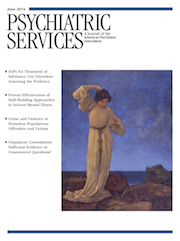Substance Abuse Intensive Outpatient Programs: Assessing the Evidence
Abstract
Objective
Substance abuse intensive outpatient programs (IOPs) are direct services for people with substance use disorders or co-occurring mental and substance use disorders who do not require medical detoxification or 24-hour supervision. IOPs are alternatives to inpatient and residential treatment. They are designed to establish psychosocial supports and facilitate relapse management and coping strategies. This review assessed the evidence base for IOPs.
Methods
Authors searched major databases: PubMed, PsycINFO, Applied Social Sciences Index and Abstracts, Sociological Abstracts, Social Services Abstracts, Published International Literature on Traumatic Stress, ERIC, and CINAHL. They identified 12 individual studies and one review published between 1995 and 2012. They chose from three levels of research evidence (high, moderate, and low) based on benchmarks for the number of studies and quality of their methodology. They also described evidence of service effectiveness.
Results
Based on the quality of trials, diversity of settings, and consistency of outcomes, the level of evidence for IOPs was rated high. Multiple randomized trials and naturalistic analyses that compared IOPs with inpatient or residential care found comparable outcomes. All studies reported reductions in alcohol and drug use. However, substantial variability in the operationalization of IOPs and outcome measures was apparent.
Conclusions
IOPs are an important part of the continuum of care for substance use disorders. They are as effective as inpatient treatment for most individuals. Public and commercial health plans should consider IOP services as a covered health benefit. Standardization of the elements included in IOPs may improve their quality and effectiveness.




